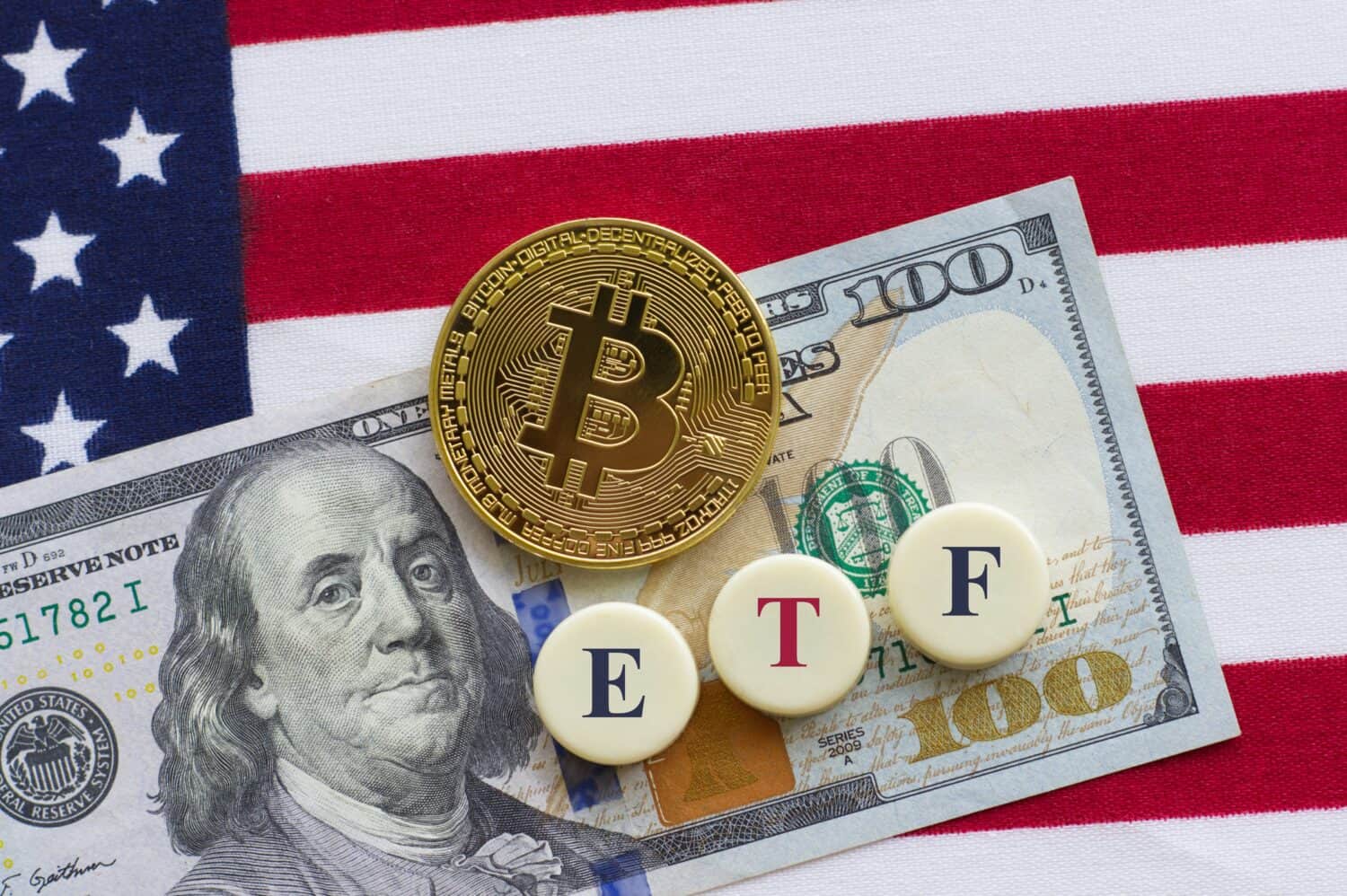
As spot Bitcoin ETFs gain traction, more and more retail investors can gain exposure to Bitcoin through their brokerage accounts, without going through the hurdles of actually holding Bitcoin.
What are spot Bitcoin ETFs?

Spot Bitcoin ETFs are exchange-traded funds that track the current price of Bitcoin and directly hold this cryptocurrency. You can buy shares through various brokerages -such as Fidelity or Schwab. Spot ETFs may even be available through your traditional individual retirement account (IRA), Roth IRA, or 401(k).
Eleven spot Bitcoin ETFs launched back in January. So which spot ETF should you consider? One that’s currently generating a lot of buzz is the iShares Bitcoin Trust (IBIT).
Where the iShares Bitcoin Trust shines

For starters, the iShares fund line is managed by Blackrock, the largest asset manager in the world – boasting more than $10 trillion in assets under management (AUM).
The iShares Bitcoin Trust is today’s largest Bitcoin ETF with $20 million in AUM. Its major rival, the Grayscale Bitcoin Trust has an AUM 18.67 million. And next on the list is the Fidelity Wise Origin Bitcoin Fund with an AUM of 11.36 million.
But beyond AUM, the iShares Bitcoin Trust also stands out for how often it’s traded. Its daily volume is about 26 million. Compare that to about 5 million for the Grayscale Bitcoin Trust and the Fidelity Wise Origin Bitcoin Fund each.
Where iShares Bitcoin trust falls short

While the IBIT stands out for its backing by leading asset manager Blackrock and its sheer size in the space, it does have its drawbacks. For instance, you may be facing higher fees than other spot Bitcoin ETFs at your disposal.
The iShares fund’s expense ratio is currently a competitive 0.12%. But it could rise to 0.25% 12 months after the fee-waiver initiation date of January 11, 2024. Also, keep in mind it’ll divert to 0.25% if the fund exceeds $5 billion of the Trust’s assets prior to the end of the 12-month period.
The iShares Bitcoin ETF Trust’s fees (Assuming the upcoming 0.25%) puts it in line with other leading contenders like Fidelity’s Bitcoin ETF and WisdomTree Bitcoin ETF (BTCW).
These fees are modest, considering the average spot ETF expense ratio is 1.07%. However, you can find similar funds with lower fees like the following.
- Franklin Templeton Digital Holdings Trust (EZBC): 0.19% expense ratio [Waived until the sooner of Aug. 2 or when the fund reaches the first $10 billion in assets.]
- ARK 21 Shares Bitcoin ETF (ARKB): 0.21% expense ratio
- Bitwise Bitcoin ETF (BITB): 0.20% expense ratio
- VanEck Bitcoin Trust (HODL): 0.20% expense ratio (Fee waived until the sooner of Mar. 31, 2025 or when the fund reaches its first $1.5 billion in assets)
But you should also consider the IBIT’s performance as of date.
Since inception, the iShares fund has closed at a 52-week high of $41.99. The 52-week highs for the Grayscale Bitcoin ETF and the Fidelity Bitcoin ETF stand at $65.61 and $64.42, respectively.
But before you invest in any spot Bitcoin ETF, consider this.
Your holdings would be reflecting the price movements of Bitcoin, so you’d essentially be investing in this cryptocurrency. Remember that this wildly popular crypto coin has been known for its sky-piercing highs, as well as meteoric falls that can come at a second’s notice – as with the greater crypto market.
So be sure to do your due diligence before investing in a spot Bitcoin ETF or any investment directly or indirectly related to crypto, and make sure you have the risk tolerance to stomach any of the drops.
Why we covered this

Following years of regulatory battles, the emergence of spot Bitcoin ETFs have opened the doors to crypto for millions of retail investors. Now, these ETFs can allow people to gain exposure to Bitcoin through their brokerage accounts and even IRAs in some cases. Eleven spot Bitcoin ETFs were launched back in January and these funds are clawing to reign supreme and capture your dollars. The iShares Blackrock Bitcoin Trust stands out from the pack with its massive cut of the market and its backing by financial titan Blackrock. But it may not be the best for every investor. And similar options may be a better bang for your buck. So we developed this brief guide to give you a glimpse of what’s out there.
Thank you for reading! Have some feedback for us?
Contact the 24/7 Wall St. editorial team.





